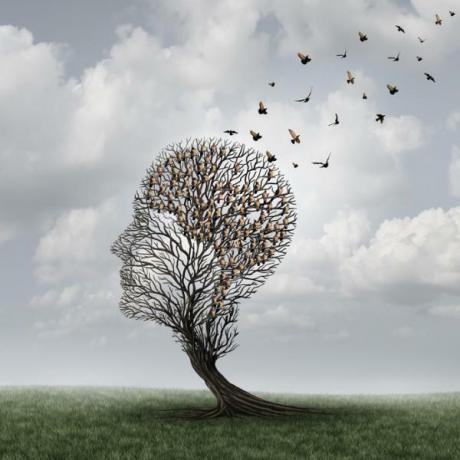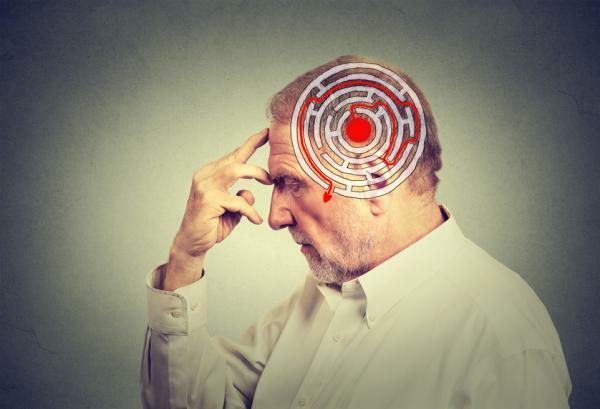
"Memory is one of nature's most closely guarded secrets." (Tulving, 1995). Memory is one of the higher faculties of the human being. It has been considered this way since time immemorial, since the conservation and subsequent use of this compendium of knowledge has always been a real challenge for humanity. We are, to a large extent, an inheritance of what our predecessors were, and to make many decisions, conscious or unconsciously, we turn to our memory, that is, what we thought, did or lived previously. An individual without memory is like a being adrift, with great risk of social maladjustment as well as isolation. A serious problem is not remembering or remembering only to a limited extent.
We can affirm that memory, linked to intelligence and conveniently stimulated, is essential in our life, based on decision-making in which we do not only intuition intervenes but also the ability to think, together with the reflection that in turn needs memories, recent and distant, precisely through the memory. Memory preserves the past and updates it in the present. We are constantly pinning and recalling data. Through memory there is history and man has one of his essences: historicity. From all this it can be concluded, the importance of knowing the causes as well as possible treatments of the different pathologies associated with memory. In this work, an analysis will be made of the different disorders not attributable to a normal forgetting process, such as
Index
- Discussion on memory pathologies
- Causes and current status of the issue of memory pathologies
- Alzheimer disease
- Treatment
- Research line proposal
Discussion on memory pathologies.
As part of the mnesic process, it is included, as a counter figure, oblivion. The function of this is to prevent the overload of useless or little-used data in the memory store.
Following the laws of Ribot, the last thing learned is forgotten first. A little repeated memory loses its evocative force. As a clear example, we have the case of languages: if it is not practiced, the terms learned are erased. A new stimulus that is associated by similarity, proximity or temporality to everyday engrams, has less chance of being forgotten. And likewise, the relationships of meaning last longer than the little understood or confused facts. It is easier to memorize if you get the main idea first and then the details. Active repetition, interest, and concentration would facilitate memorization.
However, when the memory loss It is not attributable to a normal forgetting process, it is stated that there is Amnesia - generic name.
We can define amnesia as the total or partial inability to record, retain or evoke information.
According to the areas covered, we can talk about several types of amnesia:
- Total amnesia: the individual loses his memory completely, he forgets his life. Bergson said that: "... without memory I have no experience, no education, nor do I remember what I want to show ...". Consequently, without memory there is no character or personality or person.
- Partial amnesia, the individual forgets a short period of time, from a point backwards or forwards. This type of amnesia often occurs after seizures such as epilepsy or hysteria.
- Lagunar amnesia, the affected person forgets what happened before a traumatic event, taking only episodes or periods, and According to the type of memory involved, we will have the distinction between: antegrade or retrograde.
The anterograde amnesia, also called fixing amensia, refers to the inability to learn new information after the appearance of the disorder - normally organic - that gave rise to amnesia. Forget at the same rate that events happen. By definition, it will affect short-term memory, however preserving memories prior to the disease. By contrast, retrograde amnesia is forgetting what happened in the period prior to the disease. It is the impairment of the ability to evoke information and well-established events before the onset of the disease.
As we have mentioned previously, for Ribot, these memories would be lost in reverse order at the time of their acquisition. That is to say, the closest memories in time would disappear first, and the most remote memories - childhood memories last. It can even cover fifteen-year periods before the episode. The amnesic syndrome can be accompanied by apathy, lack of initiative and spontaneity.
Depending on the type of injury and its place, we can talk about different consequences taking into account the different systems and subsystems. In generic terms, we talk about short-term memory and long-term memory. Focusing on MLP, at present it is not entirely clear which and what type are the systems that are involved in maintaining the information. Amnesic subjects seem to have problems in episodic memory, and mild in semantics - most of the concepts are learned early so they are not very disturbed.
Focusing on MCP, and following the structure proposed by BaddeleyIn the case of injury in the phonological loop, the subjects will lose the ability to keep verbal information in their memory, which will lead to difficulties at the linguistic level. In the case of injury to the visuospatial agenda, the subjects will have difficulties to retain the stimulating images in their memory. Finally, an injury to the central executive will result in the amnesiac having trouble organizing and planning his actions and thinking, as it is This system is in charge of combining the automatic actions with each other with other actions of a more voluntary type, which if not remembered cannot be activated.
If we look at the distinction he made Schacter (1987) - implicit memory or explicit memory - subjects with amnesia do not have implicit memory problems, but do have explicit memory problems. Implicit memory is that which is involved in any memory task and which does not require conscious recall of any previous event. Instead, explicit memory requires the conscious recall of knowledge learned in a previous experience (it would be equivalent to episodic).
In reference to the processes of Encoding and Recovery, subjects with amnesic problems will present problems depending on which of these processes may be altered. Studies on localization of functions indicate that recovery problems usually appear with lesions of the right frontal and parietal lobes - also present in the patients with Parkinson's and Huntington's disease-, while the coding problems appear with a lesion of the left front, which will prevent them from remembering events of their life current. It usually occurs in cases of Alzheimer's dementia or Korsakoff syndrome.
Encoding alterations they generate difficulties in both recognition and recovery tasks since the information could not be stored. Alterations in recovery they allow good performance in recognition tasks but not in free recall tasks.
Finally, and taking into account the temporary, permanent or temporary, there are different types:
- Amn. Temporales, A. Post-traumaticAfter a state of lack of consciousness, the subject shows severe memory problems, disorientation and confusion. After a period of time, it will recover.
- Electroconvulsive therapyAfter the application of this therapy there is a period of amnesia that will vary depending on how the treatment has been administered.
- A.Global Transitory, due to stressful or strong emotional situations, as a consequence of a sudden depression of activity in the hippocampus. It can affect antegrade -the usual- or retrograde.
- TO. Psychogenic, of psychological origin –the least common- being the most common the states of flight and cases of multiple personality.
- Amn. Permanent,Korsakov syndrome, usually occurs in alcoholic people and is caused by malnutrition typical of alcoholism, which produces thiamine deficiency, the cause of the syndrome. They will have anterograde and retrograde amnesia.
- Surgical interventions, can lead to different amnesic syndromes.
- Vascular problems, the type of memory that will be affected will be in relation to the area of the brain affected by these problems.
- Anoxia and hypoglycemia, the lack of oxygen in the brain can produce permanent memory problems.
- Herpic encephalitis, Herpes simplex usually attacks, when it is installed in the brain, the temporal lobes which can lead to memory problems, especially anterograde memory.
- Alzheimer's, a disease that due to its relevance will occupy a special section.

Causes and current status of the issue of memory pathologies.
Thanks to the integration of disciplines such as psychology, physiology, neuropsychology, pharmacology, morphology, or molecular biology, among others, currently it is possible to understand part of the malfunction of some of these systems in pathologies, of a degenerative type -Alzheimer, Pick or Korsakov-, and of a traumatic, cerebro-vascular type, or infectious. The results of the functional studies have revealed that, both by the number of structures that participate, and by the network of connections involved, the neuroanatomical, psychological and neurophysiological bases of memory are very complex, not having been explained totally.
Thus, pathologies that affect memory can be caused by a deterioration that will have an organic or psychological cause. Amnesia, paramnesia, agnosia, apraxia, aphasia, and hypermnesia are some of these diseases.
From the psychological point of viewAlthough there are different explanations for amnesia, at present, the one that seems to have the most validity is the one proposed by Mayes (1988). He proposes that amnesia represents a deficit in the use of contextual information. There is a distinction between intrinsic context, what must be remembered, and extrinsic context, what happened incidentally when learning something. The latter refers to space-time attributes.
According to studies, the difficulties that amnesiacs seem to show in remembering the extrinsic context would make it difficult to remember the implicit context. From the neurological point of view, It has been proven that the temporal lobe is related to the storage and retrieval functions of information. It is a brain area that has undergone few modifications throughout the evolutionary process of mammals and contains two main structures, which modulate the declarative aspects of memory. Thus, the injury or deterioration of one of its structures -the hippocampus- leads to a loss of the ability to store information after the date of the injury, keeping the memory of events that occurred before the injury - amnesia antegrade.
On the other hand, although still far from fully understanding the biophysical and biochemical bases of memory, it is becoming increasingly clear that what we remember is not the stimuli themselves, but the relationships between them, and what information is stored as structural changes in memory.
The modulation of many of the cognitive processes that it performs cerebellum it also widens the frontier in the study of the different processes of memory. Although the process of imprinting and retaining fingerprints is a general function of nerve cells, this does not mean that memory activity, complexly structured, involves all parts of the brain equally, nor is it a function of the entire cerebral cortex, considered as a whole indivisible. Data from contemporary physiology and neuropsychology suggest that memory activity It is guaranteed by a complex system of brain sectors that work in coordination, each of which makes its specific contribution to this complex activity. In this sense, current trends point out that it is essential to perfectly grasp that memory or its opposite, oblivion, does not It is more than a partial manifestation of memory, and that without memory we could not understand what they tell us, what we read or to reason. The cognitive psychology of memory is currently engaged in the in-depth study of these interactions.
What concerns to Scientific research projects currently under development, we can mention two: first, refers to the Relationships between experience and modifications in the Gene Expression of activated neurons. Selective gene activity makes it possible to establish which are the neuronal populations responsible of certain activities and establish temporal hierarchies of operation of these populations. In this way, memory would be cellularly defined by dynamic modifications of cell conformation, and Alterations of this normal process of structural modification will lead to alterations in the functionality of the neuron. In the same sphere is included the contribution of Genetic Engineering. The approach to Alzheimer's disease is one of the bastions of this line of work.
The second, of great impact, is the Study of the mechanisms of origin and neuronal regeneration. The possibilities of neuronal transplants -or implants-, as a tool in the treatment of diseases caused by neuronal degeneration, seems to be one of the areas with the greatest future. The door has been opened to the study of neuronal transplantation for the treatment of Alzheimer's disease. The time may not be far off when neuroblast implantation is the first-hand solution for the treatment of brain injury, regardless of whether it is traumatic, degenerative, infectious or cerebrovascular. Even the same normal aging process could be slowed or totally stopped by the neural implant. Similar to cosmetic surgery.
Alzheimer disease.
It corresponds to what was called "Cerebral arteriosclerosis”. Alzheimer's disease is named after Alois Alzheimer, a German physician who, in 1906, described the symptoms of the disease in the brain of a woman in her fifties who suffered from what appeared to be a mental illness. When the woman died, examining her brain found abnormal clusters (now called neuritic or senile plaques) and tangled bundles of fibers (now known as neurofibrillary tangles) within neurons (nerve cells) in certain areas of the brain. Currently, these plaques and tangles are known to be characteristic of Alzheimer's disease and, only When identified in the brain, a definite diagnosis of the disease can be made. Alzheimer's.
Memory loss is a common symptom of normal aging called "benign forgetfulness of old age", and defined operationally as “age-associated memory impairment”, but it can also correspond to the initial state of a "dementia". The Alzheimer's It is a medical circumstance that disturbs the functioning of the brain, affecting those parts of the brain that control thinking, memory, and language. It is a progressive disease that develops in phases - as a general rule, from its beginning to the last stages, the average period of time is five years-, destroying gradually memory, reasoning, judgment, language and, over time, the ability to carry out even the simplest tasks.
His start or first stage it is, generally, with short-term memory failures. At this stage, the first problems appear in the intellectual faculties. Thus, before knowing the diagnosis, the patient is criticized for being careless, he makes mistakes that harm him or his family, he feels incapable of fulfilling his obligations.
In the second stage, the problem in the cerebral cortex determines that language disorders appear, with difficulty in understand complex texts, to evoke words, distortion of words as well as loss of skills. This also includes the loss of spatial orientation, calculation disorders, motor clumsiness, even loss of the ability to dress or groom themselves without assistance. To all this and because of it, you can add pictures of depression and delusions of prejudice or jealousy. Gradually, you will lose agility and sphincter control, until in the third stage the patient is bedridden. It is necessary to feed and clean him as if he were an infant. Alzheimer's disease usually leads to death in about seven to ten years, but it can progress more quickly or more slowly - as little as three years and as long as fifteen.
Its causes are very complex: Researchers study improper processing of some brain proteins, failures in neurotransmission systems, the effect of free radicals on neurons, excess calcium intracellular... as possible causes of the disease. There is a relationship between eating habits and memory, especially when it comes to preventing Alzheimer's disease. A recent neurological study, conducted on more than 800 randomly selected people over 65 years of age who had not suffered from Alzheimer's, suggests that eating certain types of fats can help maintain a mind lucid. Likewise, another study has shown that diets high in cholesterol, a source of saturated fat, increase the presence of amyloid proteins, a hallmark of Alzheimer's. In any case, and despite research in different fields, nowadays, there is no possibility of a cure.
This type of neurological ailment, as he has indicated, has a higher prevalence in those over 65 years of age. Although younger people can also have Alzheimer's disease, this is much less common. In one study, Alzheimer's disease alone was found to affect 47% of people over the age of 85.

Treatment.
With regard to Alzheimer's disease, today it is proven that it cannot be cured nor is it possible to restore impaired functions. It is possible to slow the progress of Alzheimer's but not stop it. Treatment is designed to slow the progression of the disease, to manage behavior problems, confusion and agitation, to modify the home environment and, most importantly, to offer support to the family. As the disease progresses, it can cause more harm to the family than to the patient.
There are some drugs that can help too. Their effectiveness is not certain, but they help in a percentage of cases and can delay a more serious disability. In some people, and in the early and middle stages of the disease, medications such as cholinesterase inhibitors can prevent some symptoms from getting worse for a while limited. Among the cholinesterase inhibitors are tacrine (Cognex), donepezil (Aricept), rivastigmine (Exelon) or galantamine (Reminyl). Memantine (Axura, Ebixa) or selegiline, among others, have also been used as a specific treatment.
All these drugs cause memory, psychological and behavioral symptoms, which appear as a consequence of the disease, and the fulfillment of the activities of daily life, is improved, and thus will increase the quality of life of patients and their relationship with the half. Depression frequently appears in the early stages of the illness and can respond to antidepressant treatment.
Along with this, it is convenient that the patient is stimulated, that he has mental and physical activities according to his state. Finally, the family must learn to take care of that patient, must know the risks that dementias imply and how to avoid them, and also learn to realize their own burden and stress.
Research line proposal.
A few weeks ago, a lost young man appeared in Britain, who did not seem to notice what was happening around him. They asked him if he knew what had happened to him, if he was okay... But he was not responding and seemed scared. The staff at the health center to which he was transferred could not get the patient to speak. Finally, a male nurse handed him a paper and a pencil. The young man drew a grand piano in detail. The doctors showed him this instrument to try to make him remember. The 'castaway' sat in front of the keys and, to the surprise of the doctors and the rest of the hospital staff, he began to interpret music.
An amnesiac can run out of a single memory and yet not lose the ability to communicate or play a musical instrument, as in this case.
The case of the man at the piano makes us ask many questions about the fragility of the mind human life and its complex functioning, which today are not yet sufficiently replied. He can't remember his name, but he can play beautiful melodies.
Motor learning consists of different processes for acquiring motor skills or abilities, from which we could call motor "habits", which can range from simple stimulus-response habits, such as touching the piano. Motor learning researchers think that these skills are based on the implementation of "programs learned motors ", which would be mental representations of the sequence of movements that the subject must perform. And our man "Remember" how to play your piano.
It is no longer in doubt that the action of the brain underlies not only simple and physiological behaviors - breathing, walking... - but also cognitive and elaborate behaviors such as speaking, learning, thinking... and composing or interpreting a symphony. Currently, we have available important developments such as Brain function research techniques, which allows a very detailed description of the structure and function of the brain; Better knowledge of the psychological components and processes involved in cognitive abilities how is language, reading, recognition or memory, as a result of the development of Cognitive Psychology; and finally the computing development which has opened up greater possibilities for the modeling of cognitive functions.
Me Proposal would be the Research Development, that leads us to the answers and deep knowledge about the brain correlates of mental processes:
- What units (neurons) are linked to the event, how they work, how they synaptate, what substances participate in the transmission of information.
- What emerges from the work of a group of neurons (organization in networks).
- How the entire organization contributes to the work of more complex systems that involve system connections.
- How the functioning of these cells in the brain is influenced by the individual's own previous cognitive experience.
- How environmental factors influence the constitution and maintenance of brain functions.
We cannot think of the neural correlate of mental functions as a simple element or an isolated aspect of brain organization. Rather, a mental process, such as Memory, rests on the activity of a complex brain system, made up of multiple components that must be studied at different levels.
The information translated into electrical stimuli is how the brain receives data about its environment, knowing how the hippocampus stores information Recently, it is a gigantic step to neuroinformatics, knowing about the phenomena of wakefulness and sleep, in addition to the genesis of feelings, could take us to know the Essence of Mind.
This article is merely informative, in Psychology-Online we do not have the power to make a diagnosis or recommend a treatment. We invite you to go to a psychologist to treat your particular case.
If you want to read more articles similar to Memory psychopathologies, we recommend that you enter our category of Cognitive psychology.
Bibliography
- Modules Memory Psychology. UOC.
- From Vega, Manuel. Introduction to cognitive psychology. Alliance (1984). All the chapters related to Memory (Structures, processes, mental representations).
- Baddeley, A. (1998). Human Memory. Theory and practice. Chapter: "Understanding Amnesia". Pages 348-369.
- Article: The Brain: That Unstable Matrix, Fernando Cardenas Pms.- Marisol Lamprea, Department of Psychobiology, University of Sao Paulo. Brazil. http://www.psicologiacientifica.com/publicaciones/biblioteca/articulos/ar-fer05.htm
- Madrid Association of Alzheimer's Patients. http://www.afal.es
- Fundación Alzheimer Spain. http://www.fundacionalzheimeresp.org/actualidad/prensa2
- Shands Health Care. US. http://www.shands.org/health/spanish/esp_ency/article/000760trt.htm


